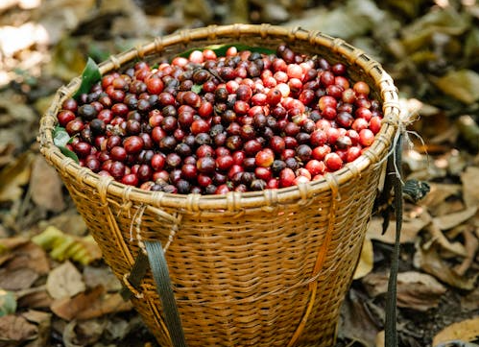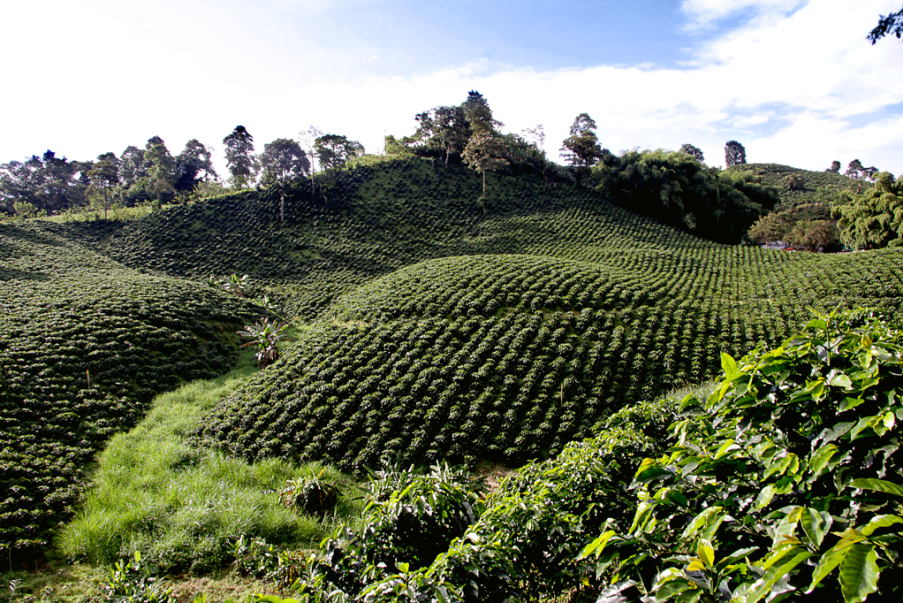Origin of the Month
Our monthly coffee selections!
Learn about our monthly coffee selections! Every 30 days we bring in a new exotic origin and a new premium origin every quarter.

Origin of the Month january 2026
honduras reserva guama danta
Over the years, we have brought you some fantastic coffees grown in Honduras:
- Those who have been customers for a long time surely remember La Hondurena.
- Then there was the El Canecho Micro-lot, grown on a 1.2-acre farm, and the
- Reserve Pacavita with those notes of Roasted Almond, Green Apple, and Vanilla.
This Guama Danta is equally impressive.
The Farmers
The Comoyagua region of Honduras is home to just about every possible micro-climate and this coffee is an example of the nuanced and complex coffees the farmers are producing here.
Many coffee farmers contributed to this lot, all of them seen as community leaders who grow their coffee for the benefit of their people. They are a community of farmers dedicated to helping everyone advance. One of them stands out, though.
Alfonso Ramos has been growing coffee here for more than 50 years. He shares his bountiful experience and knowledge with all the farmers around him and helps them get their coffee to market and negotiate fair prices for their harvests. All these farmers are continually working to improve the quality of their product.
They are experimenting with new processing techniques and growing high-profile varietals. Their objective: kick
down the door of the specialty coffee market and earn the money that comes with it. Keep your eyes on Honduran coffees in the future because it is bright.
The Coffee
The Comoyagua region is Honduras’ most productive and diverse coffee producing region. The farmers grew this coffee at elevations from 4100-5000 feet above sea level.
The varietals in this lot include: Lempiras, a high-yeilding dwarf tree, Caturra, a natural mutation of the Bourbon variety, Catuai, a cross between highly productive Mundo Novo and compact Caturra, IHCAFE 90, a high yielding dwarf tree and
Catimor, also a high yielding tree.
This lot was washed processed, which results in clean, bright, and consistent coffee flavors throughout the lot. This coffee has a
medium body, medium acidity and, while sipping, you may detect flavor notes that remind you of Cocoa Powder, Praline, Brown Spice, Hazelnut, and Red Apple.

Origin of the Quarter Q1 2026
Mexico Finca Fatima Natural
First things first – this coffee earned a cup score of 88.5, making it the highest-scoring coffees we’ve ever brought you in our five-year history. It might surprise you that our top scoring coffee comes from Mexico, but here we are.
We’re proud to bring you another excellent premium coffee. Now let me tell you how the farmers did it.
The Farmers
Ernesto Perez and his sister, Givette Perez Orea, are third-generation coffee farmers. Their family has been growing coffee on Finca Fatima (finca means “farm” in Spanish) for almost 100 years. Let’s face it – nobody does something for a century without getting really, really good at it.
Their 49-acre farm is in Coatepec, Veracruz, which is Mexico’s oldest and most historic coffee-growing region. Arabica coffee trees were first introduced here in the late 1700s by a Spaniard named Juan Antonio Garcia. The farm sits at about 4,100 feet above sea level and is dedicated to cultivating premium lots of Criolla, Typica, and Geisha varietals, among others. They achieve these premium lots by focusing on careful farming practices and innovative processing methods.
Seed-To-Cup
Here’s the twist – Ernesto and Givette are also coffee roasters, which sets them apart from most coffee farmers. Every single decision this brother-sister team makes on the farm is made with the unique ability to taste what they’ve grown and roasted.
In essence, no coffee leaves their farm without them knowing, beyond a shadow of a doubt, that it’s of the highest quality.
Finca Fatima is special in another way too – biodiversity. They also produce honey, grow and maintain citrus groves, and offer agrotourism experiences. Visitors to the farm see firsthand what careful, sustainable farming practices do for the quality of coffee this farm produces.
The Coffee
Most of Finca Fatima’s lots are washed process, but this one is different. This lot was processed naturally, where the beans are dried in the cherry. The natural process allows the cherry’s sugars to infuse the beans during fermentation and drying. The final cup is complex and layered, with standout fruity character. While sipping this gem, you may catch notes of strawberry, tropical fruit, cane sugar, and lemon.